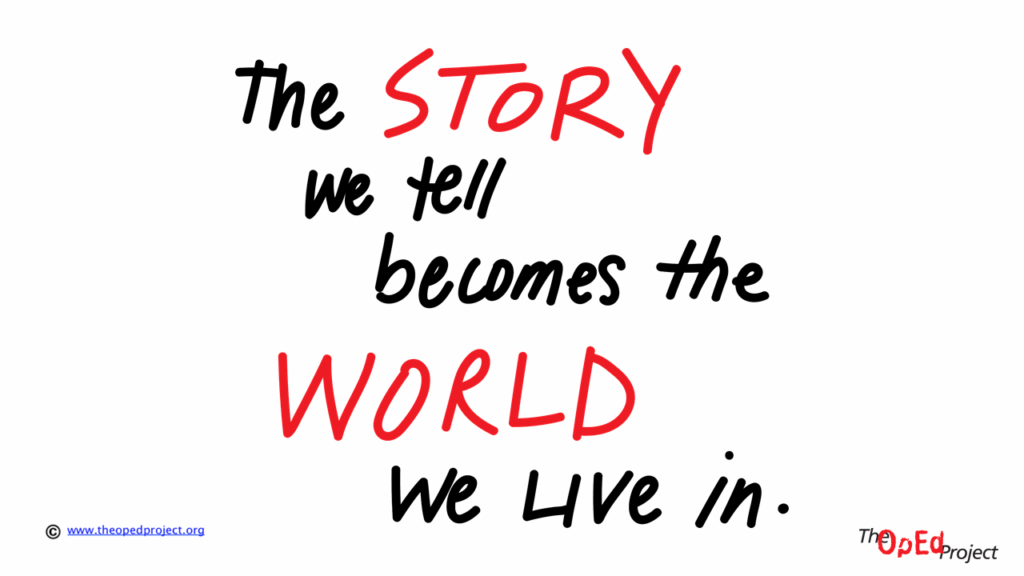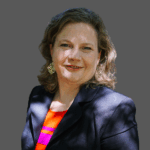
I didn’t realize how much I had internalized the idea that power is a negative force until I heard the words, “Power is kind,” at the start of The OpEd Project workshop.
It was only a moment in the course, but it struck at the core of my reticence to frame my own experience as expertise and to use it to create change.
That’s just one of the things I learned when I received a scholarship to attend the two-day, seven-hour “Write to Change the World” course, which The OpEd Project runs to increase the impact of underrepresented thinkers. I want to share some of what I learned with fellow ASJA members.
Power is too often destructive, and even unfeeling—but it does not have to be. Being open to authority’s ability to do good was a revealing and radical shift in my thinking—one that I needed in order to grow as an effective communicator and potential changemaker.
Using Op-Eds to Address Glaring Representation Gaps
The OpEd Project was founded in 2008 to address the striking imbalances that exists in U.S. opinion forums.
At ASJA, most of our members of freelance non-fiction writers are women, although we are actively working to increase our membership diversity to better reflect the world we live in.
It was stunning to hear that even today, only 26% of opinion writers in decision-making forums are women. Representation of marginalized groups is harder to quantify. In one example, a study by the UCLA Latino Policy and Politics Institute found that in 2022, Los Angeles Times editorials featured Latino authors 10% of the time, and Latinas 6% of the time despite Latinos making up half of Los Angeles County. Similar representation gaps are glaring in my areas of expertise, which include Middle East politics and human rights. It’s not just that fewer women and people on the margins are published—exponentially fewer pitch their opinions to be published.

The OpEd Project workshops empower writers and others to use their expertise as a means to a world-changing end.
One way that The OpEd Project tackles this issue is by working with potential opinion writers to view themselves as experts. I was lucky to join the organization’s “Write to Change the World” workshop to experience their approach myself. The workshop typically costs less than $500, but I applied for and got a “Pay in Words” scholarship. In my application, I explained why I needed assistance, the op-ed I was committed to writing, and how it would contribute to changing the world.
OpEd Project Workshop Mechanics
At my workshop, we were a group of several dozen, engaging online by throwing out ideas in the chat and break-out rooms. Moderators Kelly J. Kelly and Mary C. Curtis, both deeply experienced journalists and fantastic conveners who are on The OpEd Project’s regular roster of coaches, started out by addressing our assumptions about credibility, expertise, and value. We played a game, trying to one-up each other by presenting ourselves as “the expert” on a subject of our choice, practicing using detailed credentials (with quantifiable numbers!), and narrowing the focus of our expertise to show specific bona fides.
We prepared for day two of the workshop by freewriting an idea for an op-ed for 15 minutes. Once we had established our expertise in a field, we worked together to structure our arguments, provide evidence, and address counterarguments. I met one one-on-one with someone with ideas to solve the housing crisis and someone else working on women’s rights. And again, the moderators emphasized how crucial our ideas and positioning could be: “The more power you have, the more power you have to change the world.”
Workshop participants have a month to engage with The OpEd Project’s mentor-editors, who help them hone ideas and get published, along with offering numerous other resources. I haven’t done this yet, but since my gestating opinion piece is about steps we can collectively take to create a more peaceful world, I had better get moving.
Read more about The OpEd Project workshops here and scholarships here.
**
Charmaine Seitz is a writer, designer, and analyst who reported for almost 20 years from the Palestinian town of Ramallah, writing about the peak years of the Oslo negotiations process from 1993 to 2012. She has been published in the Economist, Janes intelligence Digest, The Nation, In These Times, MERIP, San Francisco Chronicle, and other publications. She is working on a memoir about her experiences and manages a communications consulting company, Seitz Communications, that produces writing, editing, design, and grant proposals for non-profit organizations. She is also a co-chair of ASJA’s Diversity, Equity, Accessibility, and Inclusion Committee.

